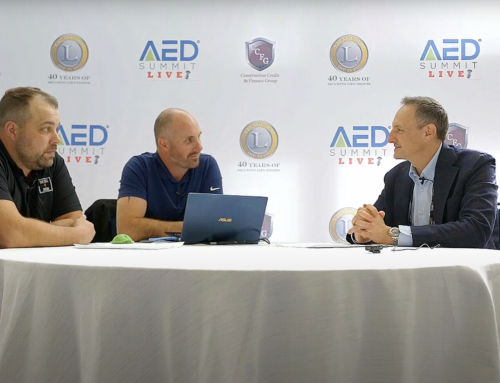A Guide to Effective Debt Collection Strategies for the Construction Industry
Whether you are a contractor, subcontractor, or supplier in the construction industry, dealing with unpaid invoices and overdue payments can be a frustrating and challenging experience. In this informative guide, we will provide you with valuable insights and practical tips to navigate the complex world of construction debt collections. We understand that the construction business involves multiple parties, intricate payment processes, and unique challenges when it comes to recovering the money owed to you. With our step-by-step strategies and expert advice, you will learn how to effectively manage and pursue construction debt collections, ensuring that your business remains financially stable and thriving. So, let’s dive in and equip you with the tools and knowledge you need to successfully handle construction debt collections!
1. Understanding the Construction Industry’s Unique Debt Collection Challenges
Debt collection in the construction industry can be particularly arduous due to its distinct set of challenges. Payment delays, disputes over project scope, and cash flow issues are some of the common hurdles faced by construction companies. To navigate these difficulties, it is crucial for businesses to have a solid debt collection process in place. One effective strategy is sending out letters to delinquent clients, reminding them of their outstanding balance and urging prompt payment. These letters serve as formal documentation of the debt and can also serve as evidence in legal proceedings if necessary. Moreover, they can help maintain a record of communication between parties, which can aid in resolving any disputes or misunderstandings. By utilizing well-crafted letters, construction companies can enhance their chances of successful debt collection.
Thus, the ability to make timely phone calls is crucial for debt collectors working in the construction industry. A thorough understanding of the payment process and project lifecycle allows them to identify where problems may arise and properly address these issues with creditors. With this knowledge, debt collection in construction is made significantly more efficient and effective.
2. Steps to Prepare for Effective Debt Collection
Gathering and organizing all relevant documents and information regarding the debt, such as copies of invoices, contracts, and communication records, can help establish the validity of the debt and provide evidence in case legal action is necessary. In debt collection, having a solid paper trail is crucial to presenting a strong case. These documents serve as proof of the debt owed and can demonstrate the debtor’s responsibility to repay. Additionally, maintaining detailed records can help track the progress of the collection process and ensure that all necessary steps have been taken. When initiating contact with debtors, sending carefully crafted letters that outline the amount owed, payment terms, and consequences of non-payment can be an effective way to encourage timely payment. Whether it is a demand letter or a follow-up reminder, a well-drafted letter can convey a sense of urgency and seriousness, urging debtors to comply.
Developing a clear and concise script or outline for communication with debtors is crucial in the debt collection process. This well-structured script serves as a guide, ensuring that all important information is covered consistently and maintains a professional and assertive tone. When communicating with debtors, it is essential to remember that each interaction can be an opportunity to resolve the outstanding debt and establish a productive dialogue. By utilizing a well-crafted script, debt collectors can effectively address concerns, answer questions, and negotiate payment arrangements, ultimately increasing the chances of successful debt recovery. Additionally, having a defined script allows debt collectors to handle challenging conversations with confidence and empathy while adhering to legal and ethical guidelines. A comprehensive script also helps standardize the collection process, ensuring that all debts are pursued in a systematic manner, thereby maximizing the chances of collecting outstanding balances promptly and efficiently.
Researching and understanding the relevant debt collection laws in your jurisdiction is crucial to avoid legal pitfalls and ensure compliance while pursuing debt recovery. When it comes to construction debt, the intricacies of collecting outstanding payments can be even more complex. Construction projects often involve multiple parties and various stages of payment, which can complicate the collection process. It is important for contractors, subcontractors, and suppliers to be well-informed about their rights and obligations in order to navigate these complexities successfully. For instance, understanding the mechanic’s lien laws specific to construction can be instrumental in securing payments for unpaid work or materials. Additionally, being aware of any specific timelines or notice requirements pertaining to construction debt collection is essential to safeguarding your interests. By being knowledgeable about the specific jargon and legal processes related to construction debt collection, you can protect your rights, minimize disputes, and expedite the recovery process.
Again, prioritizing follow-up and maintaining consistent communication with debtors is key to successful debt collection. Contacting debtors with timely phone calls can show your commitment and determination to recover the desired payment. By consistently following up on their overdue debts, you can increase the chances that they will pay in full and on time.
3. Importance of Managing Credit Risk Early
Early credit risk management is crucial for reducing the likelihood of delinquent accounts and defaulted payments, which can have a significant impact on the overall debt collection process. One important aspect of this risk management is the proper handling of asset claims. When a debtor fails to make payments, it might be necessary for the creditor to pursue legal actions in order to collect the debt. In such cases, asset claims can play a crucial role in the debt collection process. An asset claim allows the creditor to legally lay claim to the debtor’s assets as a means of recovering the owed amount. This can include bank accounts, property, or even vehicles. By properly assessing and pursuing asset claims, creditors can increase their chances of successfully collecting on delinquent accounts and minimizing losses. It is important for businesses to understand the procedures and regulations surrounding asset claims, as this knowledge can greatly improve their ability to navigate the debt collection process effectively.
Proactive measures in managing credit risk early allow businesses to identify potential customers who may pose a higher credit risk and take preventive actions, such as setting lower credit limits or adjusting payment terms, to mitigate the risk of non-payment. When it comes to debt collection, being proactive is essential for businesses to stay on top of their financial health. Timely and accurate credit risk assessment is crucial in determining the creditworthiness of customers, as it helps identify those who are likely to default on their payments. By investing in effective debt collection strategies, businesses can minimize the impact of bad debts and potential financial instability. Employing a dedicated team or outsourcing debt collection services can significantly streamline the recovery process and increase the chances of successful debt collection. Additionally, implementing an efficient invoicing and payment tracking system can facilitate timely payments and reduce the occurrence of delinquent accounts. Overall, managing credit risk and adopting proactive measures within debt collection practices can safeguard businesses from potential financial losses and maintain a healthy cash flow.
All in all, debt collection is an important tool in the credit risk management process. Early implementation of effective strategies can help to minimize the need for further collection efforts while also building customer relationships through trust and reliable payment behaviors. Involving debt collection services can maximize cash flow and ensure that customer contracts are upheld and respected.
4. Leveraging Technology During the Debt Collection Process
Implementing automated communication channels, such as email or text messages, can help streamline the debt collection process and improve response rates from debtors. In today’s digital age, utilizing these channels is crucial in effectively managing and recovering debts. By integrating automated communication tools into debt collection strategies, businesses can save valuable time and resources, as well as increase their chances of successful debt recovery. Not only do these channels provide a convenient and efficient way to reach debtors, but they also allow for personalized and timely communication, thus enhancing the overall customer experience.
Debtors are more likely to respond to a text message or email promptly rather than traditional mail or phone calls, which often go unanswered or ignored. The use of automated communication channels also facilitates the tracking and monitoring of communication history, allowing debt collectors to better manage their interactions with debtors and ensure compliance with relevant regulations and industry best practices. By leveraging these technologies, businesses can optimize their debt collection processes and achieve higher recovery rates.
However, the use of data analytics and machine learning algorithms in the field of debt collection is proving to be extremely useful. Not only do these tools help identify potential high-risk debtors, but they can also help prioritize asset claims for a more efficient debt collection process. With greater accuracy, less time and resources will be spent on collecting overdue loans while maximizing effort to collect assets from the most likely high-risk debtors.
5. Strategies to Resolve Delinquent Payments
Implementing effective communication strategies is a vital component of successful debt collection. When it comes to resolving delinquent payments, clear and frequent communication is crucial. Debt collectors like CCFG must prioritize establishing open lines of communication with the debtor, offering multiple channels for dialogue such as phone calls, emails, and letters. By maintaining regular contact, debt collectors can effectively inform debtors of their payment options and provide opportunities to negotiate repayment plans. Additionally, this ongoing communication allows for addressing any concerns or disputes in a timely manner.
For instance, when asset claims are involved, timely communication becomes even more critical. Debt collectors must ensure that they promptly inform debtors about outstanding asset claims and the potential consequences if these claims remain unresolved. Thus, implementing effective communication strategies not only facilitates the collection process but also helps protect the rights and interests of all parties involved.
Similarly, debt collectors must prioritize flexible payment arrangements that fit the individual needs of any debtor. This could include extended repayment terms, lower interest rates or settling accounts with reduced balances. Offering this range of options shows empathy and understanding towards debtors and can be more likely to result in timely payments. Being able to provide payment plans that fit a debtor’s ability is an important part of successful debt collection practices.
6. The Benefits of Professional Debt Collection Services
Professional debt collection services like construction credit and finance group, offer expertise and experience in handling various types of debts, ensuring effective and efficient recovery processes. When it comes to construction debt, these CCFG can prove to be invaluable for both contractors and subcontractors. Construction projects often involve significant financial investments, and unresolved debt can have a detrimental impact on the overall success of the project. Debt collection agencies specialized in construction debt understand the complexities involved in this sector and are well-versed in the specific laws and regulations governing such cases. By leveraging their knowledge and resources, these agencies can navigate through the intricacies of construction debt, facilitating a timely resolution that benefits all parties involved. Whether it is pursuing payments for completed work, dealing with non-payment issues, or enforcing judgments, professional debt collection services can provide the necessary support to ensure proper compensation and financial stability in the construction industry.
By utilizing professional debt collection services, businesses can save time and resources that would otherwise be spent on attempting to recover debts themselves and instead, focus on core operations. For the construction industry, where non-payment issues are prevalent, having an efficient debt collection strategy is crucial. Construction debt can arise from various scenarios such as unpaid invoices, disputed payments, or project delays. Non-payment or prolonged debt collection efforts can severely impact a construction company’s cash flow and hinder its ability to meet financial obligations, pay employees, or invest in future projects. However, by entrusting the task to professional debt collectors who specialize in the construction industry, businesses can ensure a smoother and more successful recovery process.
CCFG experts are well-versed in the legal complexities, regulations, and unique challenges associated with construction debt, enabling them to adopt tailored strategies that yield positive results. With their expertise and dedication, businesses can gain a competitive advantage by minimizing financial losses, maintaining healthy cash flow, and protecting their overall financial stability. By partnering with professional debt collection services, construction companies can regain control over their finances while continuing to thrive in their core operations.
Thereafter, professional debt collection services can be an effective way to handle debt recovery while preserving positive customer relationships. This is achieved by having a separate third party take care of the process, reducing the risk of potential conflicts arising from direct phone calls or other contact methods with the debtor. In this manner, a company can maintain goodwill without having to worry about disagreements that could potentially tarnish their reputation.
Contact us today for more info: 1 800-848-4176 No charge unless we collect.




